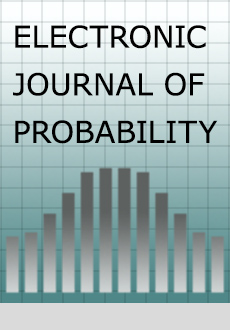Abstract
We investigate the infinitely many demes limit of the genealogy of a sample of individuals from a subdivided population that experiences sporadic mass extinction events. By exploiting a separation of time scales that occurs within a class of structured population models generalizing Wright's island model, we show that as the number of demes tends to infinity, the limiting form of the genealogy can be described in terms of the alternation of instantaneous scattering phases that depend mainly on local demographic processes, and extended collecting phases that are dominated by global processes. When extinction and recolonization events are local, the genealogy is described by Kingman's coalescent, and the scattering phase influences only the overall rate of the process. In contrast, if the demes left vacant by a mass extinction event are recolonized by individuals emerging from a small number of demes, then the limiting genealogy is a coalescent process with simultaneous multiple mergers (a $\Xi$-coalescent). In this case, the details of the within-deme population dynamics influence not only the overall rate of the coalescent process, but also the statistics of the complex mergers that can occur within sample genealogies. These results suggest that the combined effects of geography and disturbance could play an important role in producing the unusual patterns of genetic variation documented in some marine organisms with high fecundity.
Citation
Jesse Taylor. Amandine Véber. "Coalescent processes in subdivided populations subject to recurrent mass extinctions." Electron. J. Probab. 14 242 - 288, 2009. https://doi.org/10.1214/EJP.v14-595
Information





